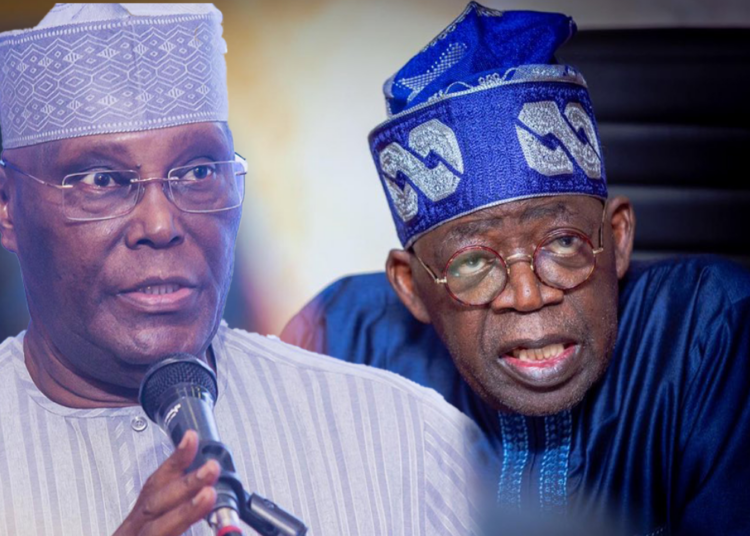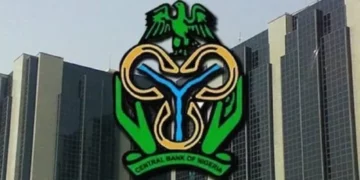Former Vice President and presidential candidate of the Peoples Democratic Party (PDP) in the 2023 elections, Atiku Abubakar, has urged President Bola Tinubu to consider his recommendations for reviving Nigeria’s struggling economy.
In a statement shared via his X handle (formally twitter), on Sunday, Atiku expressed support for the removal of fuel subsidies and the unification of the naira exchange rate, but criticised the manner of the implementation of the policies by the Tinubu administration.
Atiku highlighted that while he is not in office, his suggestions were in the interest of the Nigerian people. He accused the Tinubu administration of subjecting citizens to “excruciating pain” due to what he described as “trial-and-error economic policies.”
Following the removal of the fuel subsidy and the introduction of forex unification, Nigerians have experienced soaring prices for essential goods such as food, transportation, and fuel. This has led to widespread discontent regarding the various economic reforms enacted by the Tinubu government.
In the post titled ‘What We Would Have Done Differently’, Atiku outlined key reforms he would have adopted to address Nigeria’s economic challenges, particularly on fuel subsidy removal and foreign exchange reforms. He referenced his policy document, “My Covenant with Nigerians”, which proposed a “comprehensive diagnostic assessment of the country’s situation, greater consultation with stakeholders, and clear plans for achieving desired outcomes.”
Atiku wrote: “We would have planned better and more robustly. My reform journey would have benefited from more thorough preparations, deeper diagnostic assessments of Nigeria’s conditions, increased consultation with key stakeholders, and well-defined ideas for the final destination. We would have relied on my comprehensive reform agenda as set out in “My Covenant with Nigerians”, a policy document that aimed to protect our fragile economy by preventing business collapses. Our document outlined policies that were consistent and coherent.”
He further added, “We would have sequenced our reforms to achieve fiscal and monetary alignment. Introducing reforms to set an appropriate exchange rate, cost-reflective electricity tariffs, and PMS prices all at once is certainly excessive. Additionally, the Central Bank’s aggressive tightening of the money supply complicates matters. As importers of PMS and other petroleum products, removing subsidies on these products without a stable exchange rate would be counterproductive.”
Atiku emphasised the need for a strategic approach to reforms, acknowledging the risks of failure posed by weak institutions and the challenges they present. He wrote: “We would have been more strategic in addressing reform challenges. I would have recognised the risks of reform failure and the challenges posed by weak institutions, and I would have worked tirelessly to address them. As a responsible leader, I would pause, reflect, and, if necessary, adjust implementation.”
Furthermore, Atiku stressed the importance of fiscal discipline and transparency in leadership: “I would have led by example. Any fiscal reform to improve resource management must first eliminate revenue leakages due to governance costs, including government expenses and procurement processes. Neither I nor my team would live in luxury while citizens suffer. We would have communicated more effectively with the people—courteously, tactfully, and diplomatically. Transparent communication is essential for public trust, which is vital to helping the public understand government actions.”
Addressing fuel subsidy removal, Atiku reiterated his support for the policy but criticised its opaque implementation, particularly singling out the Nigerian National Petroleum Company Limited (NNPCL) as a major beneficiary of the subsidy regime. He described the current system as a “breeding ground for rent-seeking,” and advocated for the gradual privatisation of state-owned refineries.
“We are the least efficient OPEC member in terms of refining capacity utilization and the percentage of crude refined,” Atiku stated, arguing that Nigeria must strive to refine at least 50% of its current crude output while exporting part of the capacity to ECOWAS countries.
He argued that a gradual and phased approach to subsidy removal, similar to reforms in Malaysia and Indonesia, would have allowed for smoother adjustments.
“A phased approach would allow for adjustments, adaptation, and minimal disruption. When I was Vice President, we adopted a phased strategy and completed phases one and two of subsidy reform before our tenure ended. Unfortunately, the incoming administration in 2007 abandoned the reforms,” he added.
Atiku also addressed foreign exchange reforms, contending that a fully floating exchange rate system is too extreme for Nigeria’s economic conditions. “A fixed exchange rate system was unsuitable, as it contradicts our goal of an open, private sector-driven economy. However, given Nigeria’s economic conditions, a fully floating exchange rate system would be too extreme. We would have encouraged the Central Bank to manage a gradualist approach to FX management, favouring a managed float,” he stated.
Atiku’s recommendations came at a critical time as Nigerians continued to grapple with the economic consequences of ongoing Tinubu administration’s reforms.











